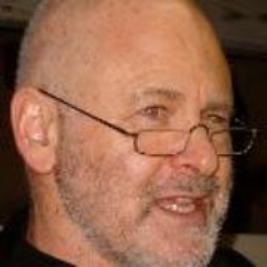
EVERY day we read about corruption or misappropriation of funds. Consequently, in our imagination as well as lived reality, holding office is associated with enrichment. Discussion tends to focus on illegal acts. However, not every legal action is beyond examination. When those in high office increase already huge salaries, with accompanying perks, in one of the most unequal states in the world, interrogating what is acceptable is necessary. Fortunately, there are important models of leadership from which we can learn, from the time when involvement in the liberation struggle involved choices signifying danger and sacrifice.
Chief Albert Luthuli faced this frankly: "What the future has in store for me I do not know. It might be ridicule, imprisonment, concentration camp, flogging, banishment and even death. I only pray to the Almighty to strengthen my resolve so that none of these grim possibilities may deter me from striving ... to make [South Africa] a true democracy and a true union in form and spirit of all the communities in the land ... it is inevitable that in working for freedom some individuals and some families must take the lead and suffer: The Road to Freedom is via the Cross." We need to ask what has happened to that spirit, why those reading the ANC centenary slogan "100 years of selfless service" react with scepticism.
Questions related to resources were not always related to ethics, but decided by what was possible. In earlier periods of history human beings could not easily acquire means of survival from their environment or where they did develop means of sustenance these were fragile. Little could be done in the face of natural disasters that destroyed crops, shelter and other facets of human existence. Over centuries science has advanced sufficiently for us to meet most of what is needed for human beings to live with dignity and without hunger, to be provided with adequate shelter, healthcare and other basic needs. Humanity now has power to achieve what was previously impossible and improve the quality of people's lives, reducing damage to their health.
Our constitution operates on the basis that no one should be left hungry in a country that can fill everyone's stomach, or face the elements when shelter can be provided, or drink contaminated water where there are resources to provide clean water. Since science has made it possible to meet basic needs, whether or not this is done has become an ethical question. It is related to how resources are distributed. The development of scientific knowledge was in many periods linked with the rise of capitalism, which is based on a social ethic that is generally unsympathetic to solidarity between human beings.
Consequently, even though there is enough for all, whether all receive what they need is mediated by the relationship between need and greed. It is affected by the extent to which acquisition of wealth by some negates provision of basic needs to others. Capitalist economies, particularly those with a social-democratic orientation, have sometimes found a balance ensuring that all enjoy adequate conditions of existence. In post-apartheid South Africa, access to government has often led to wealth accumulation at the expense of the poor. Not only have individuals become wealthy but also they have diverted resources meant for the poor into their own pockets. Providing a quality of life that befits a human being was one of the factors motivating the struggle against apartheid. Luthuli, Mandela and others whose names we do not know, stood tall and demanded these rights. Some were not from the most impoverished backgrounds, some came from privileged homes. But they believed with Heraclitus that "no human being is alien to me". They lived an understanding of ubuntu, signifying that self-realisation is possible only in relation to the wellbeing of others. In forming a bond with the oppressed those who became involved in the struggle did not merely possess a political understanding of the forces ranged for and against apartheid.
They invested emotionally in the achievement of freedom. They unified their understanding with a passion to act in order to free us all. What is striking about the times in which we live is the absence of this passionate and compassionate component, in acting for what is right. It has in many cases been transformed into cynicism and even callousness, indifference to those who have died under bullets (not apartheid bullets but bullets discharged in a democratic South Africa) or through failure to provide safe toilets in schools or safe water or decent housing.
Who would have thought that an ANC government would not only kill miners but also that there would be no word of commiseration to the families of the dead? The struggle to sustain our freedom depends not only on institutions, for these can be undermined. We need to recover the ethos of solidarity with the poor, empathy with all who suffer injustice. If those who now rule have "hardened their hearts", it is up to all who seriously embrace the spirit of freedom to retrieve its values and infuse these into our society.
Professor Raymond Suttner is attached to Rhodes University and Unisa. He blogs at raymondsuttner.com. Twitter:@raymondsuttner This article first appeared on Creamer Media's website.polity.org.za
